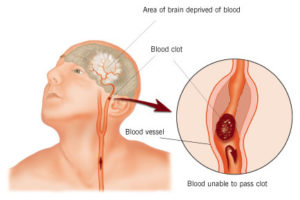What is Anoxia?
Anoxia can be defined as a condition wherein very low level of oxygen is supplied the tissues of the body. It is extreme form of Hypoxia, mainly relating to the brain. However, there is adequate supply of blood to the tissues.
Causes
There are several causes of Anoxia and Hypoxia. These can occur due to inhalation of harmful chemicals or gases like carbon monoxide. It can also occur when a person climbs to a high altitude, where oxygen content is low in the air. In other cases, these conditions might take place due to asthma attacks, strangulation or some kind of poisoning. In many cases, the sufferer becomes unconscious due to inadequate supply of oxygen. The period of unconsciousness ranges from hours, days, weeks to months, depending on the severity of the cause. Occasional jerks or fasciculation might occur during unconsciousness.

Other common causes of Anoxia or Hypoxia are:
- Suffocation
- Drug Use
- Drowning
- Heart Attack
- Brain Tumor
- Low Blood Pressure, etc.
Treatment
An immediate treatment of this medical condition is providing adequate fresh air to the sufferer. This supply of fresh air saturates the blood with oxygen, preventing arising of any cardiovascular problems. In cases where the sufferer is already unconsciousness, respiratory treatment may be needed immediately.
Prognosis
In cases where immediate supply of oxygen is provided, the patient might recover, but it completely depends on the severity of the situation. However, if this is provided after a long period of time, there may be a few neurological or psychological abnormalities noticed in the patient. Some of the very common psychological conditions that might occur are psychosis, dementia, amnesia, personality regression, hallucination, mental confusion, etc.
Apart from psychological problems, the patient might also get some physical problems like:
- Ataxia, wherein there is lack of coordination between brain and body parts, resulting in slow or wobbly movements, like a drunk man.
- Apraxia, not able to perform common tasks like brushing or drinking water.
- Quadriparesis, wherein the patient feels week in limbs
- Heavy headache


